Some of the greatest stories about ancient civilizations is how they eventually fell, whether into obscurity or history depended on the situation. With ancient Greece, the civilization undoubtedly survives to this day, but not in the same vein. Ancient Greece was a site to behold, as many of its most important monuments still stand to this day in the form of ancient, beautiful ruins.
Ancient Greece undoubtedly rose to power and held onto it, but there comes a time when even the most powerful empire falls, and Greece is no different. There are plenty of reasons for the fall of ancient Greece, and we talk about some of the most prominent contributing factors. After all, those who fail to learn from history are doomed to repeat it, and the modern age would do well to learn from ancient civilizations!
Alexander the Great
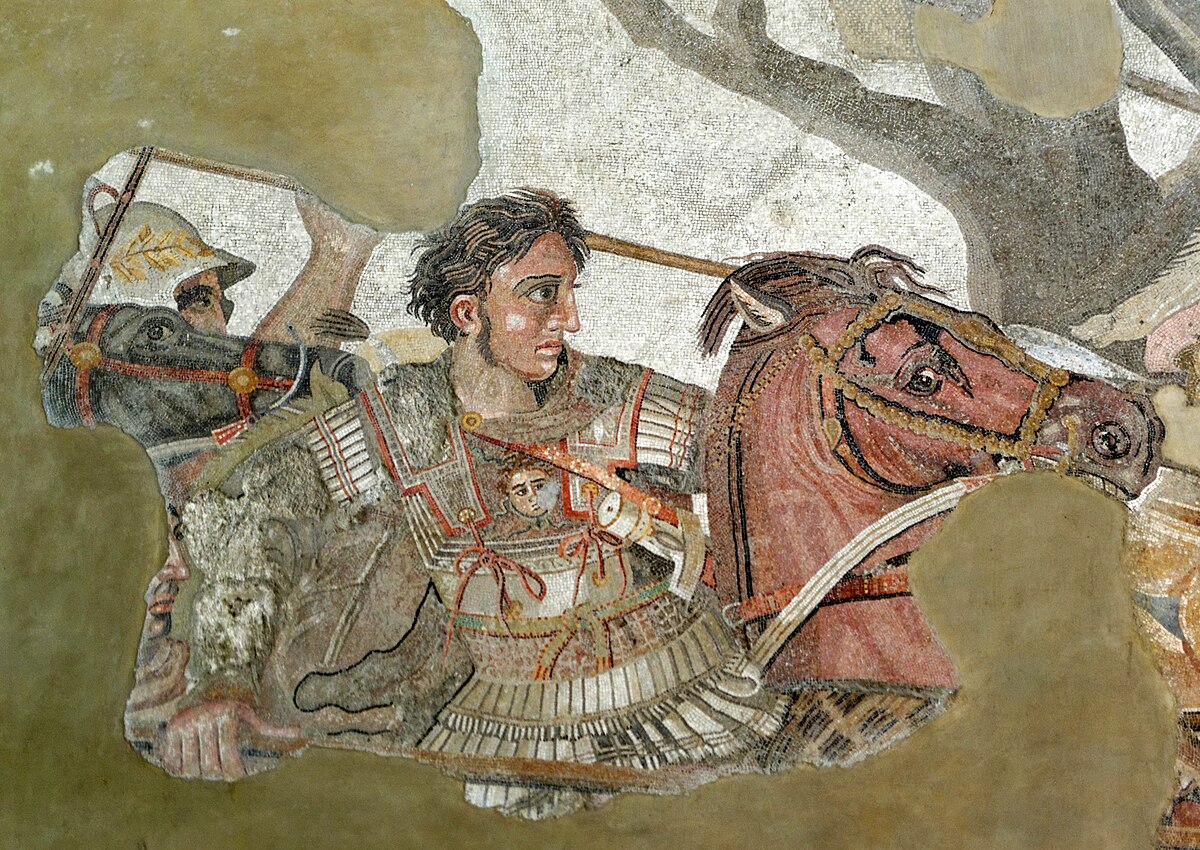
It might seem somewhat strange to add Alexander the Great to the list, when you consider that his father Philip II united most of Greece and Alexander himself would go on to conquer all of the lands between Greece and India. With all of his accomplishments, it’s hard to imagine that Alexander the Great would contribute to the overall downfall of ancient Greece.
However, it was the fact that Alexander conquered so many places that the Greeks began to squabble amongst each other. For all of his attempts at creating the most powerful empire in the world, Alexander could not hold it. When Alexander died, the lands were left to his generals, which started the avalanche of Greece’s downfall. Alexander the Great is one example of a leader that became so sorely needed by his army, that his death ended up causing a power gap Greece could not recover from.
Philip II of Macedon
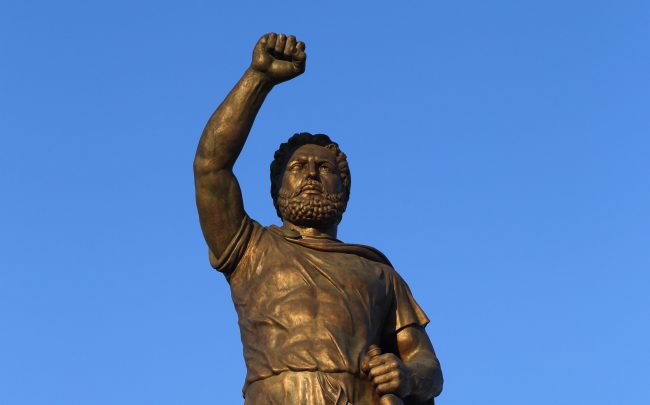
There’s no denying that Philip II of Macedon was an amazing figure of ancient Greece, as he was capable of uniting most of Greece under his rule. Unfortunately, if Alexander the Great was the avalanche, Philip II of Macedon was the noise that triggered the fall. Sparta, Athens, Thebes and Corinth were once extremely powerful city-states, though they had a habit of warring with each other.
Philip II took the reins and rode south, conquering Thebes and Athens—effectively uniting most of Greece. The power gap is the very reason why Philip II is on this list, as by trying to unite Greece, he created the situation for his son to eventually accomplish so much in his lifetime that his death would leave a gap that no one could fill. It’s odd that such a powerful combination could lead to a civilization’s downfall, but the truth is stranger than fiction.
The Decline of Hellenistic Greece

The period after Alexander’s death—where the land was divided amongst his generals—was known as Hellenistic Greece. In the modern era, this particular part of Greek history is also known as the decline of ancient Greece. Instead of finding a way to coexist and strengthen Greek culture, the generals of Alexander began to squabble. While Greece was much larger than ever before, it was politically shattered.
At this point, the cultural centers of the Greek world began to move out of the traditional Greek areas into different locations. The three prominent locations included Alexandria (located in Egypt), Ephesus (Turkey), and Antioch (Turkey). While these cultural centers were arguably more powerful and imposing, the fact that it was not under a united Greece—and in Greek soil—made it challenging to stop the creeping decline.
The Rise of the Romans
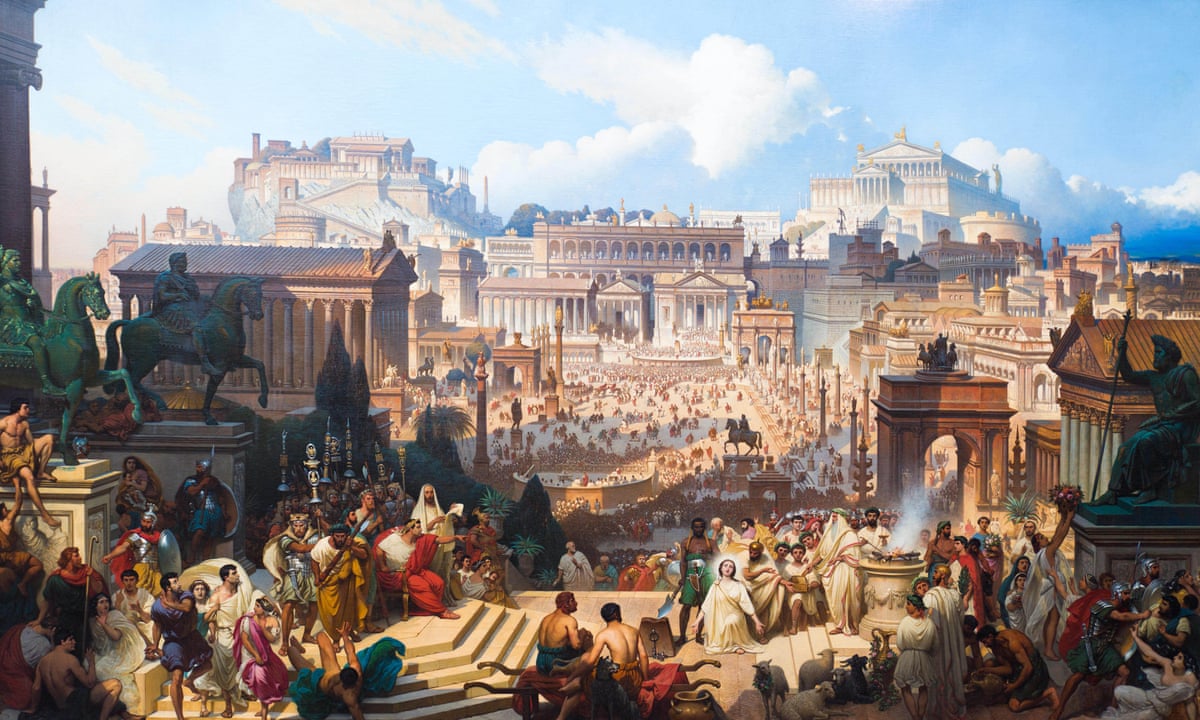
While the Greeks suffered decline due to the actions of Alexander’s generals, another power was thriving in Italy. The Greeks saw these new Romans as a threat to their rule, and they were right. When you look into the fall of the Greek civilization, all signs point to the Romans due to their conquest of Greece.
While Rome was still growing, Greece decided to try to nip the problem at the bud by allying with Carthage to challenge Rome. Unfortunately for both Greece and Carthage, the Romans were a hardy lot, and they had mastered the art of war in ways that Greece was not prepared to handle. For example, the Romans mastered a formation known as the maniple, which trumped the Greek phalanx. They were also much more skilled in the art of war, which led to multiple losses on the Greek side.
The Destruction of Carthage
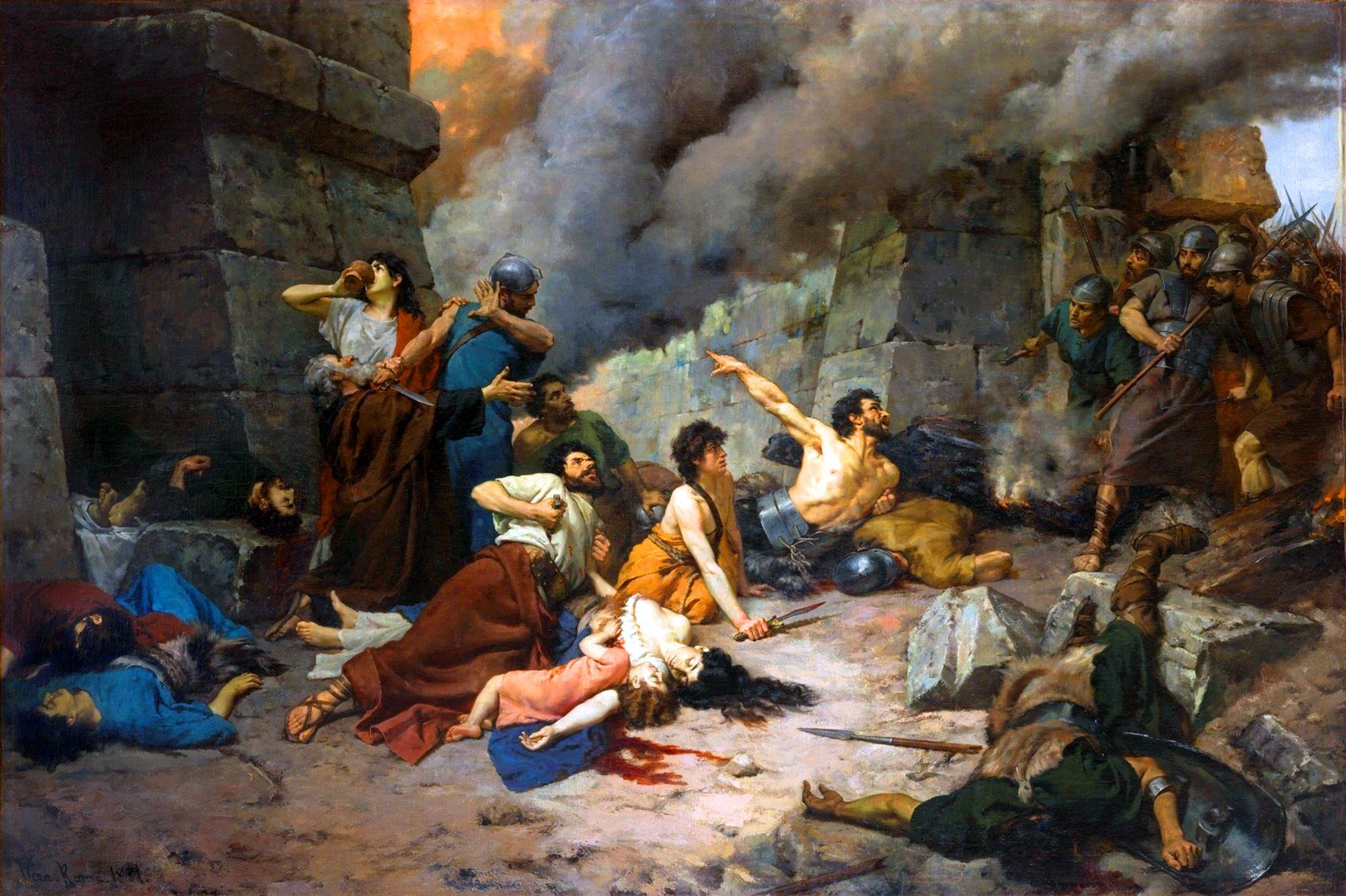
Unfortunately for Carthage, the Romans were not known for their mercy. During the Siege of Carthage—a nearly three-year siege that ended with a seven-day massacre—the Carthaginians put up a respectable fight against the Romans, especially when it came to naval combat. Unfortunately, the Carthaginians mismanaged their retreat at the cost of many ships.
This led to the Romans building a large brick structure over the harbor area of Carthage. Finally, the Romans entered the city and began systematically destroying both Carthage and its inhabitants. It was said that the Romans only took prisoners on the last day, numbering around 50,000. While Carthage might not have been Greece, it was a Greek ally, and the cruel destruction of the city and its inhabitants would also lead to the downfall of Greece.
United We Stand

The reason why the Romans were able to overpower so much of the Greek and Carthaginian forces was due to their ability to unite under a single banner. Ironically enough, the same division that plagued the Greeks in the Hellenistic Period would eventually cause the downfall of Rome, but that’s a story for another time.
In the case of the Greeks, their biggest weakness was the Romans’ strength. Not only were the Romans a much more capable military force—with many of their tactics still being studied today—but they had the capacity to act as one. It was that very quality that would bring about the end of the ancient Greeks. Perhaps if the ancient Greeks were capable of setting aside differences during wartime, we would have a different history lesson today.
The End of the Hellenistic Period
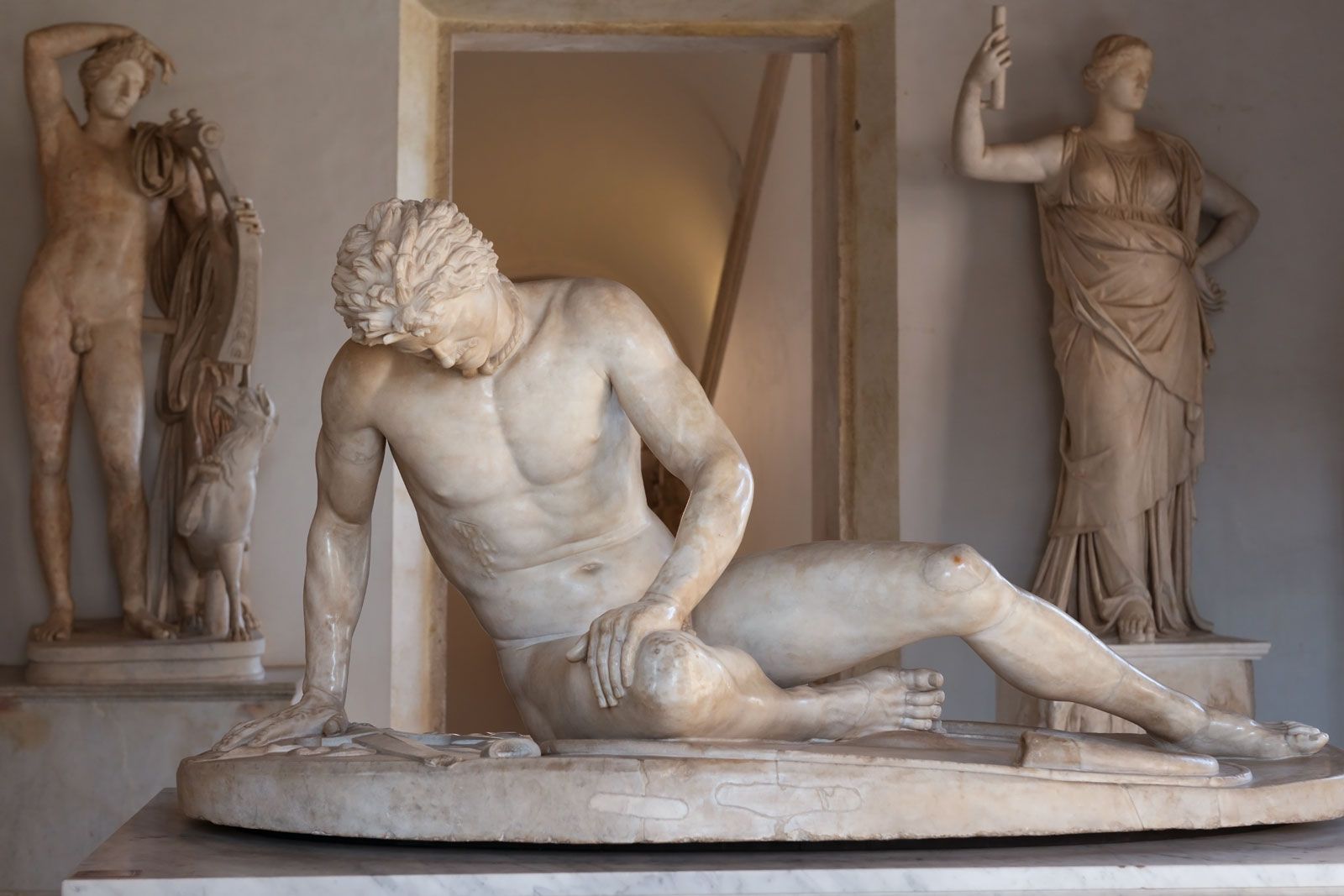
In 146 BC, the Romans succeeded in conquering the Greek peninsula. While the Greeks no longer held their original land, it didn’t mean that they were out of the picture. Its cultural centers were in other areas, and Egypt would continue to be a problem for the Romans. However, it was only a matter of time until the Romans were able to conquer even Egypt.
The very last of Alexander’s successors to fall to Rome was Ptolemaic Egypt under the rule of Cleopatra VII. Cleopatra had sought to bring about a unified world rule with the help of Mark Anthony. However, Octavian would end up swiftly defeating their forces in the Battle of Actium in 31 BC. This defeat signaled the end of the Hellenistic Period, and the decline of Greek culture and ancient Greece as a whole was complete.
The Segregation of Classes

For all of the innovations and wonderful philosophical teachings of ancient Greece, it could not escape the bondage of classes. The aristocracy and the wealthy lived entirely different lives compared to the poorer classes of the Greek world. While the modern world has the same issue, most of the wealthy of ancient Greece treated the poorer classes much too harshly.
The result was a united class of individuals harboring a deep-seated hatred for the rich. Poorer classes began to rebel, adding even further chaos to the decline of most Greek city-states. There was no longer any loyalty for the leaders of the city, as the poor were treated too harshly to care. All it took was rioting and rebellion to severely weaken various city-states, and with the threat of the Romans, it wasn’t very long before the Greek peninsula was finally in the hands of the enemy.
Similar Cultures, Different Allegiances

One of the unfortunate things about the Hellenistic Period of Greece—or even the periods that came before—was the fact that the Greeks were never a strong ally for other Greeks. They always had a habit of challenging each other’s rule, which led to many wars breaking out between city-states. It’s the reason why Philip II rode out to try to unite Greece, which eventually led to Alexander going out and conquering most of the known world.
If the Greeks hadn’t always squabbled with each other and tried to push for independence, they likely would have been able to rally against Rome. The Roman conquest of Greece was a testament of the hubris of a once great civilization. Of course, even the Romans would eventually fall, but the ancient Greeks are a cautionary tale for today’s world.